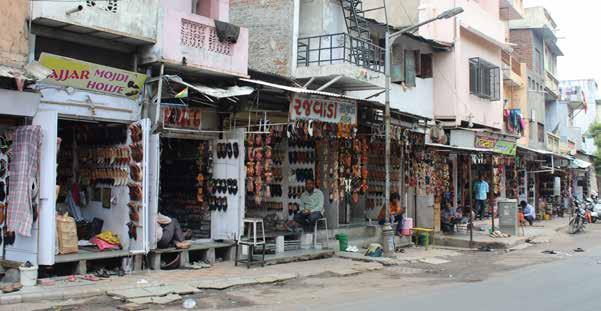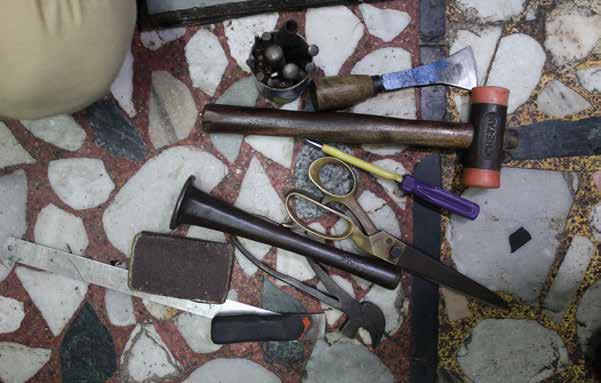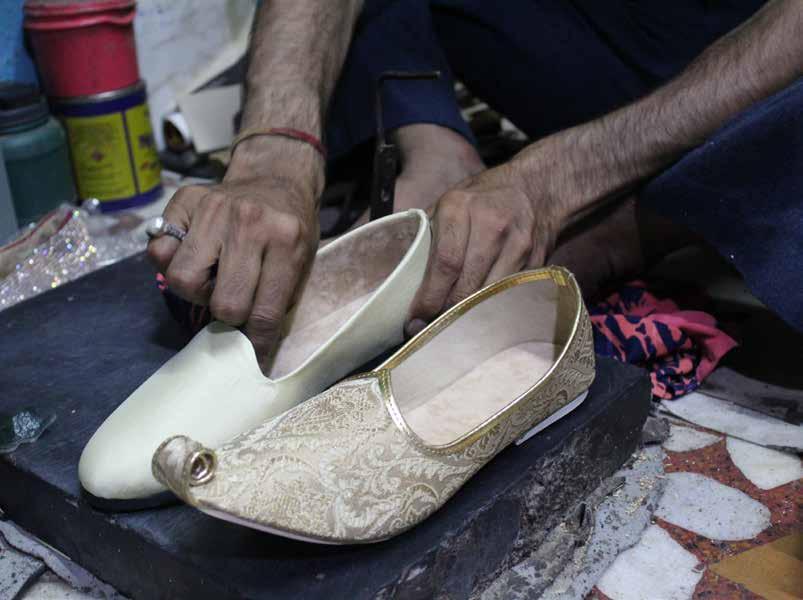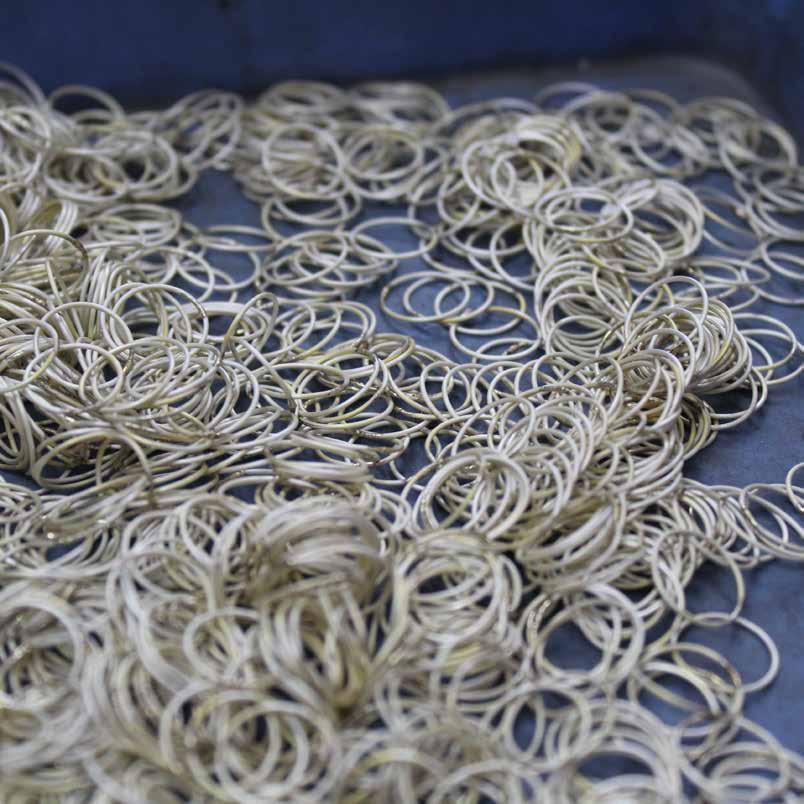
2 minute read
Mojari
Mojari Bazaar, Madhavpura
Mojari is traditional handcrafted footwear. Situated in the Madhavpura, Ahmedabad, the Mojdi Bazaar was a community of mochis (which includes Sisodiya, Solanki, Baid) who made handcrafted mojaris. They were originally from Rajasthan but due to chappanyo akaal, a famine in the 1856, they shifted to Ahmedabad. Since then, they have been practicing this craft of making mojaris in Ahmedabad. They used to make and sell the mojaris in their shops and their houses were above their shops. At that time, all the families in the bazaar used to make the mojaris, as the time passed this craft was not passed on to the newer generations.
Advertisement
At present, they only sell ready made mojaris, which they buy from Jaipur, Agra, Mumbai, Jodhpur and Kohlapur. There are 25 shops in the bazaar.



Ashokbhai (right) working with his Karigar
Ashokbhai Gajjar’s family is the only family in the bazaar who still practice this craft.
The shop is run by his father and elder brother, whereas Ashokbhai along with 2 karigars (helpers) make and sell customised mojaris. They work from 10:00 in the morning to 8:00 at night and if they have more work they also work till midnight. They buy the materials used for making the mojaris according to the requirement from Gheekata, Ahmedabad and the tools from Agra, Delhi and Ahmedabad.

Along with making the mojari, they also do the work of leather covering.
Workplace of Ashokbhai

Ashokbhai Gajjar

Each pair takes at least 4 hrs to make. They take the customer’s measurements and their preference for the design, they also provide options for the design. The mojaris are made from all kinds of fabrics like denim, canvas, velvet, raw silk and many others.

The material is put over the canvas and astar (cloth) is stitched under it. Then the sole is cut and stuck with Fevicol 707. This take 10-15 mins to dry. The shape of the mojari is given using different wooden moulds.
Tools used for making Mojaris

Even though, the other families in the community do not pass on the craft to the newer generations, Ashokbhai promises to pass on the craft so that the essence of the community lives on.













